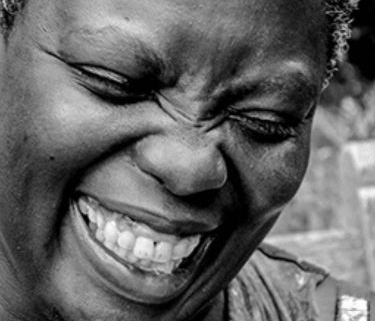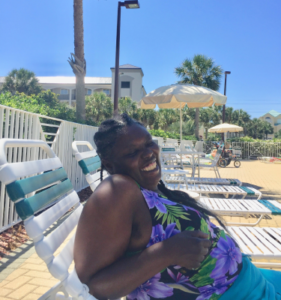In a new amicus brief, The Arc, Disability Rights Texas, and AAIDD urge Texas court to follow science, not stereotypes
WASHINGTON, DC – In a critical death penalty case, The Arc of the United States, The Arc of Texas, Disability Rights Texas, and the American Association on Intellectual and Developmental Disabilities (AAIDD), along with law firm Fried, Frank, Harris, Shriver & Jacobson LLP, have filed a “friend-of-the-court” brief urging the Texas Court of Criminal Appeals to protect people with intellectual disability from unconstitutional executions.
The group is taking a stand in support of accurate identification of intellectual disability in the case of Blaine Milam, an inmate now on death row. Their message to the court is clear: when it comes to determining who has intellectual disability, courts must refer to clinical standards—not stereotypes.
Shira Wakschlag, Senior Director of Legal Advocacy and General Counsel with The Arc of the United States: “The Arc’s advocacy led to the U.S. Supreme Court’s ruling more than 20 years ago that bars the execution of defendants with intellectual disability. Yet too often, outdated stereotypes and misconceptions lead to unjust outcomes, particularly in capital cases. We’re fighting to ensure that courts rely on clinical standards to ensure people with intellectual disability are properly identified and protected from execution. The stakes couldn’t be higher.”
Jason Kanterman, an attorney from Fried, Frank, Harris, Shriver & Jacobson LLP representing The Arc in this matter, commends The Arc and its team for their efforts in this case: “The Arc, Disability Rights Texas, and AAIDD play a pivotal role in protecting the rights and interests of individuals with intellectual disability and Fried Frank is proud to support these organizations in those efforts.”
The amicus brief comes at a critical time. Despite a 2002 U.S. Supreme Court ruling banning the execution of people with intellectual disability, the practice continues. In Atkins v. Virginia (2002), the U.S. Supreme Court recognized the special risk of wrongful execution faced by people with intellectual disability and banned their execution as cruel and unusual punishment under the Eighth Amendment. In Hall v. Florida (2014), the Court rejected an arbitrary cutoff for IQ scores in making the intellectual disability determination and emphasized the importance of courts consulting clinical standards in their analysis. In Moore v. Texas (2017 and 2019), the Court strengthened this precedent by emphasizing the need to rely on well-established clinical standards—rather than stereotypes—in making intellectual disability determinations in death penalty cases. The Arc and AAIDD filed amicus briefs in Atkins, Hall, and Moore to educate the Court on the clinical diagnosis of intellectual disability and ensure that the important precedent set in Atkins continues to be strengthened and upheld in jurisdictions around the country.
Maggie Nygren, EdD, Executive Director & CEO of AAIDD: “Twenty-two years post Atkins, people with intellectual disability, particularly people of color, are still vulnerable to wrongful convictions and death sentences. That’s because some states continue to rely on stereotypes rather than clinical standards for determining and defining intellectual disability.”
The amici have deep sympathy for the family and friends of victims in this case and support appropriate punishment of all responsible parties. However, it is critical that courts utilize clinical standards and abide by the Constitution. In Mr. Milam’s case, the State’s expert did not rely on clinical standards for diagnosing intellectual disability. This was after the State’s previous expert used the proper standards, concluding that Mr. Milam is a person with intellectual disability and should not be put to death.
This case in Texas could have far-reaching implications by undermining vital U.S. Supreme Court precedent on cruel and unusual punishment for people with intellectual disability. Executions have become less common as society’s perspectives on the death penalty have shifted. A growing number of states have been responding to these rising concerns by banning or putting a hold on executions. The pressure is mounting on other states to ensure their practices are constitutional.
The Arc and its partners will continue their fight to protect the rights of people with intellectual disability in the criminal justice system, ensuring that the Constitution’s protections extend to all.
###
About The Arc of the United States: The Arc advocates for and serves people with intellectual and developmental disabilities (IDD), including Down syndrome, autism, Fetal Alcohol Spectrum Disorders, cerebral palsy, and other diagnoses. Founded in 1950 by parents who believed their children with IDD deserved more, The Arc is now a network of nearly 600 chapters across the country promoting and protecting the human rights of people with IDD and actively supporting their full inclusion and participation in the community throughout their lifetimes. Through the decades, The Arc has been at the forefront of advances in disability rights and supports. There are over 7 million people with IDD in the United States, which encompasses over 100 different diagnoses. Visit www.thearc.org or follow us @TheArcUS to learn more. Editor’s Note: The Arc is not an acronym; always refer to us as The Arc, not The ARC, and never ARC. The Arc should be considered as a title or a phrase.
About The Arc of Texas: The Arc of Texas promotes, protects, and advocates for the human rights and self-determination of Texans with intellectual and developmental disabilities. Follow The Arc of Texas on Twitter, Facebook, and Instagram, and learn more at thearcoftexas.org.
About Disability Rights Texas: Disability Rights Texas is the federally designated legal protection and advocacy agency (P&A) for people with disabilities in Texas established in 1977. Its mission is to help people with disabilities understand and exercise their rights under the law, ensuring their full and equal participation in society. To learn more, visit our website: www.drtx.org.
About the American Association on Intellectual and Developmental Disabilities (AAIDD): Established in 1876, AAIDD is the oldest and largest professional society in the U.S. concerned with intellectual and developmental disabilities. AAIDD promotes progressive policies, sound research, effective practices, and universal human rights for people with IDD. AAIDD engages its members and the general public through its three highly regarded professional journals, catalog of well-respected books and assessment tools, quality educational programming, and partnerships with other leaders within the disability community to address issues that are important to people with disabilities and their families. Learn more at www.aaidd.org.
About Fried Frank: Fried Frank’s more than 750 lawyers are located in the key financial and government centers of New York, Washington, DC, London, Frankfurt and Brussels. The firm provides highly commercial guidance on sophisticated transactions, advises some of the largest private equity and asset management firms in the world, and develops effective litigation strategies to address its clients’ most critical challenges. More information can be found at www.friedfrank.com.
 Charlotte is an advocate with Down syndrome who was born with a congenital heart defect. She had to undergo multiple surgeries as a child and finally received a heart transplant in 2012. The journey to get her heart transplant had its challenges, but she used her experience to fight to make sure everyone had access to organ transplants. To make this a reality, Charlotte spoke with policymakers about creating a bill about organ transplant discrimination. Members of Congress created the Charlotte Woodward Organ Transplant Discrimination Prevention Act. This bill would prohibit health care entities from denying a person access to a transplant due to their disability.
Charlotte is an advocate with Down syndrome who was born with a congenital heart defect. She had to undergo multiple surgeries as a child and finally received a heart transplant in 2012. The journey to get her heart transplant had its challenges, but she used her experience to fight to make sure everyone had access to organ transplants. To make this a reality, Charlotte spoke with policymakers about creating a bill about organ transplant discrimination. Members of Congress created the Charlotte Woodward Organ Transplant Discrimination Prevention Act. This bill would prohibit health care entities from denying a person access to a transplant due to their disability.

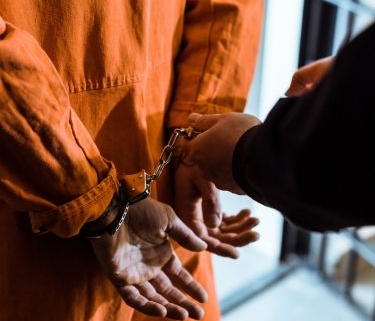
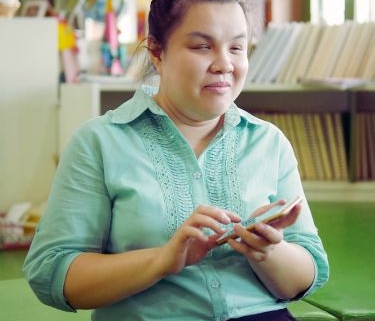



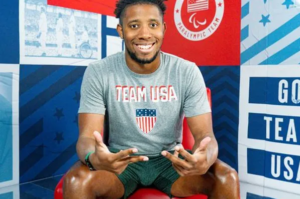 That perseverance continues to propel Lawrence to chase his dreams, powering him through twice daily swim sessions plus lifting when he’s at school and daily 4:30 am swims during breaks. “I have goals that I want to reach, and I just focus on my goals and what I need to do to achieve those goals,” he says of how he stays focused. His pre-meet routine of eating sandwiches and spaghetti helps him fuel up.
That perseverance continues to propel Lawrence to chase his dreams, powering him through twice daily swim sessions plus lifting when he’s at school and daily 4:30 am swims during breaks. “I have goals that I want to reach, and I just focus on my goals and what I need to do to achieve those goals,” he says of how he stays focused. His pre-meet routine of eating sandwiches and spaghetti helps him fuel up.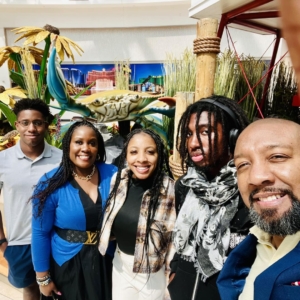 Beyond the pool, Lawrence hopes his story will shatter misconceptions about people with disabilities and their potential. “They think that we are happy with letting people do things for us and telling us what to do,” he says of societal attitudes toward autism and intellectual disabilities. “They don’t think that we are capable of making decisions for ourselves and can do things independently.” Lawrence also plans to “graduate from college in 2025, get a job doing something I love, and one day have my own home.”
Beyond the pool, Lawrence hopes his story will shatter misconceptions about people with disabilities and their potential. “They think that we are happy with letting people do things for us and telling us what to do,” he says of societal attitudes toward autism and intellectual disabilities. “They don’t think that we are capable of making decisions for ourselves and can do things independently.” Lawrence also plans to “graduate from college in 2025, get a job doing something I love, and one day have my own home.”
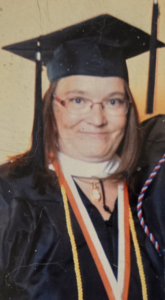 One of those people is Renee.
One of those people is Renee.
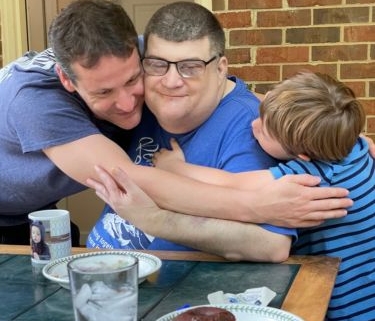
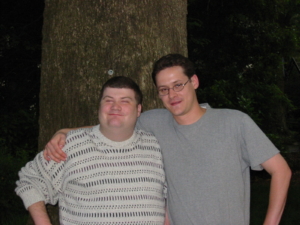 Family is at the heart of Burt Hudson’s connection to The Arc.
Family is at the heart of Burt Hudson’s connection to The Arc.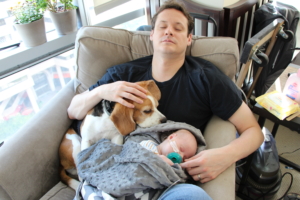 Jack is now 9 years old and, despite a speech delay from childhood apraxia of speech, he is a complex, smart, and kind third grader. He loves riding horses, dancing to Bruno Mars and Maroon 5, drumming, and acting out Muppets movies. He also has a 6-year-old younger brother, James, and “They have been a duo ever since James was born.” Burt recalls a memory from his childhood when he and his brother were wrestling in the ocean, showing John was just another sibling. The same camaraderie is seen between Jack and James.
Jack is now 9 years old and, despite a speech delay from childhood apraxia of speech, he is a complex, smart, and kind third grader. He loves riding horses, dancing to Bruno Mars and Maroon 5, drumming, and acting out Muppets movies. He also has a 6-year-old younger brother, James, and “They have been a duo ever since James was born.” Burt recalls a memory from his childhood when he and his brother were wrestling in the ocean, showing John was just another sibling. The same camaraderie is seen between Jack and James.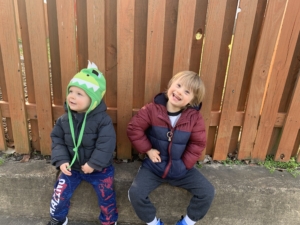
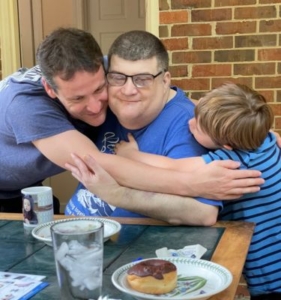 Burt wants people with disabilities and their loved ones to know they can always turn to The Arc for guidance. “The Arc is a wonderful resource full of wonderful people, one that generations of families have relied on to find the path they need to be walking.” As Treasurer of our national Board, Burt is heartened to see The Arc remain strong through the decades. “There’s a lack of compassion and a lack of love all around us, and The Arc is the heart of this country. It shows the strength we have when we’re banded together with a common cause and love for each other. The consistent light The Arc has provided gives me comfort and hope that we’ll get through anything.”
Burt wants people with disabilities and their loved ones to know they can always turn to The Arc for guidance. “The Arc is a wonderful resource full of wonderful people, one that generations of families have relied on to find the path they need to be walking.” As Treasurer of our national Board, Burt is heartened to see The Arc remain strong through the decades. “There’s a lack of compassion and a lack of love all around us, and The Arc is the heart of this country. It shows the strength we have when we’re banded together with a common cause and love for each other. The consistent light The Arc has provided gives me comfort and hope that we’ll get through anything.”